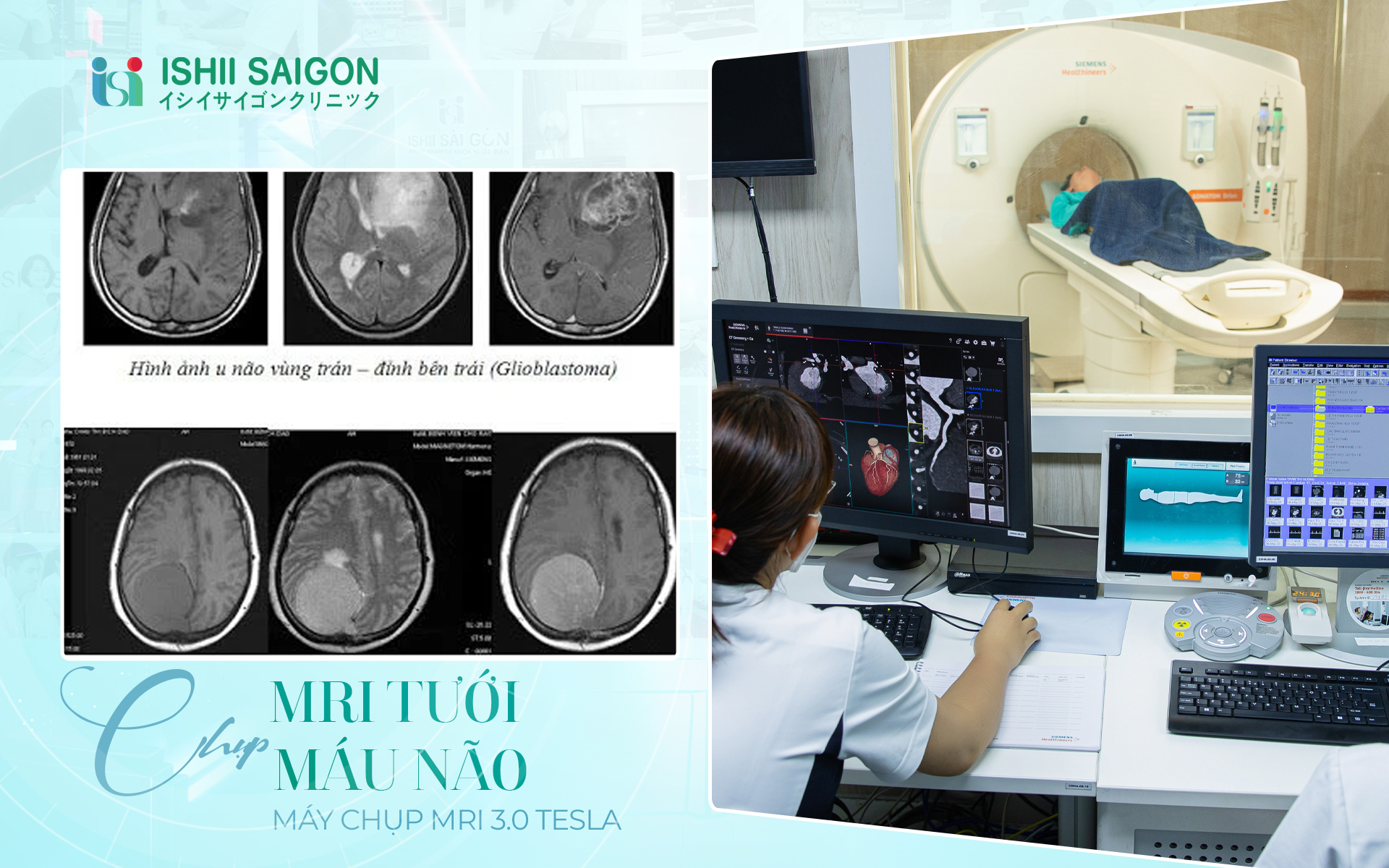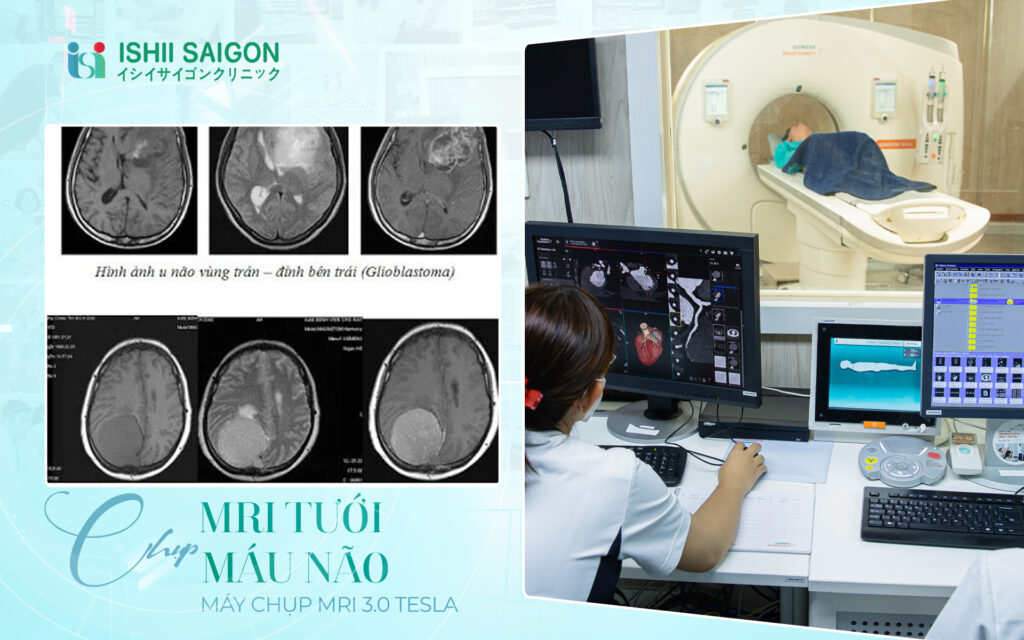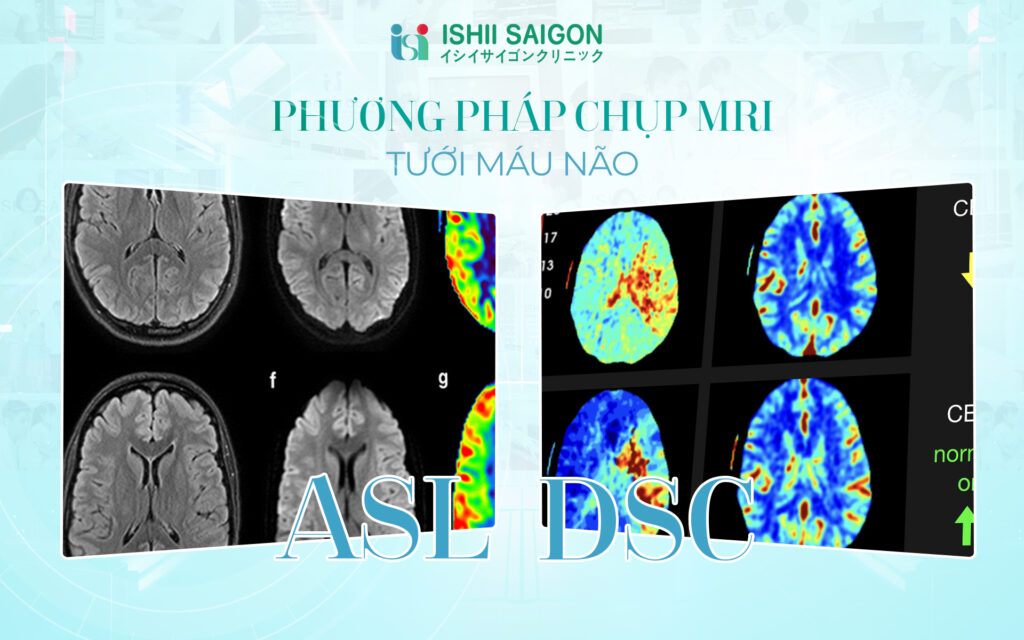
Cerebral Perfusion MRI is a diagnostic medical technique used to examine blood circulation in the brain and identify issues related to vascular obstruction or leakage. Cerebral Perfusion MRI can also help detect brain damage caused by inadequate blood supply to brain areas due to compromised cerebral arteries. In this article, we will explore the technique of Cerebral Perfusion MRI, when it is necessary, and its purpose.

The method of cerebral perfusion and cerebral artery MRI
When undergoing cerebral perfusion MRI, the patient will be injected with a contrast agent into a vein. This contrast agent will move through the blood vessels and allow doctors to examine blood circulation in the brain.
There are two different methods for cerebral perfusion MRI: Arterial Spin Labeling (ASL) and Dynamic Susceptibility Contrast (DSC). In the ASL method, a signal from the MRI machine is used to transmit electromagnetic signals into the patient's body. Then, doctors use the images from this scan to examine blood circulation in the brain. Because no contrast agent is used in this method, it is considered safer compared to the DSC method.
In the DSC method, a contrast agent is injected into a vein and images are taken as it moves through the blood vessels. This method allows doctors to directly examine blood circulation and make more accurate diagnoses. However, the use of a contrast agent can cause some side effects, such as itching or nausea.

The Purpose of Cerebral Perfusion MRI
Cerebral perfusion MRI can help doctors identify issues related to vascular obstruction or leakage in the brain. Conditions such as twisted arteries, vascular blockages, or brain cysts can be detected through this technique.
In addition, cerebral perfusion MRI not only aids in diagnosis but can also monitor the progression of the disease and assess the effectiveness of treatment. This is particularly important for patients with stroke or chronic headaches.
Another application of cerebral perfusion MRI, not related to pathological conditions but very useful, is to monitor the activity of brain regions when the patient is engaged in activities such as reading or talking. This allows doctors to examine blood distribution in the brain and assess the patient's brain health.
Indications / Contraindications for Cerebral Perfusion MRI
There are several cases in which a doctor may recommend a cerebral perfusion MRI, including:
- Cognitive decline: If you have symptoms such as forgetfulness, difficulty concentrating, or cognitive decline, your doctor may recommend a cerebral perfusion MRI to check for any issues related to blood circulation in the brain.
- Headaches: If you frequently experience chronic headaches or severe migraines, your doctor may suggest a cerebral perfusion MRI to check for any brain damage that could be causing these symptoms.
- Stroke: Cerebral perfusion MRI is also a useful technique for assessing and monitoring the development of stroke. If you have had a stroke before or are at high risk, your doctor may request a cerebral perfusion MRI to monitor disease progression and initiate timely treatment if necessary.
However, there are some cases when cerebral perfusion MRI is not recommended, including:
- You have an allergy to injectable medications: If you have an allergy to injectable medications or have had adverse reactions to contrast agents in the past, you should inform your doctor before treatment.
- You have medical devices in your body: If you have undergone artificial implants or have medical devices such as pacemakers or steel implants, you should inform your doctor before undergoing an MRI to avoid safety issues.
- You are pregnant: Cerebral perfusion MRI is not safe for pregnant mothers, so you should inform your doctor if you are pregnant or suspect that you might be.
Conclusion
Cerebral perfusion MRI is an important diagnostic technique in medicine, helping doctors identify and monitor issues related to blood circulation in the brain. There are two main methods for performing cerebral perfusion MRI that have minimal significant side effects, and indications for this scan may include symptoms such as cognitive decline, headaches, or stroke.
However, it's important to note that not everyone can undergo cerebral perfusion MRI, and there are certain cases that should be avoided. If you have any questions or concerns during treatment, always consult your doctor for proper evaluation and treatment.






